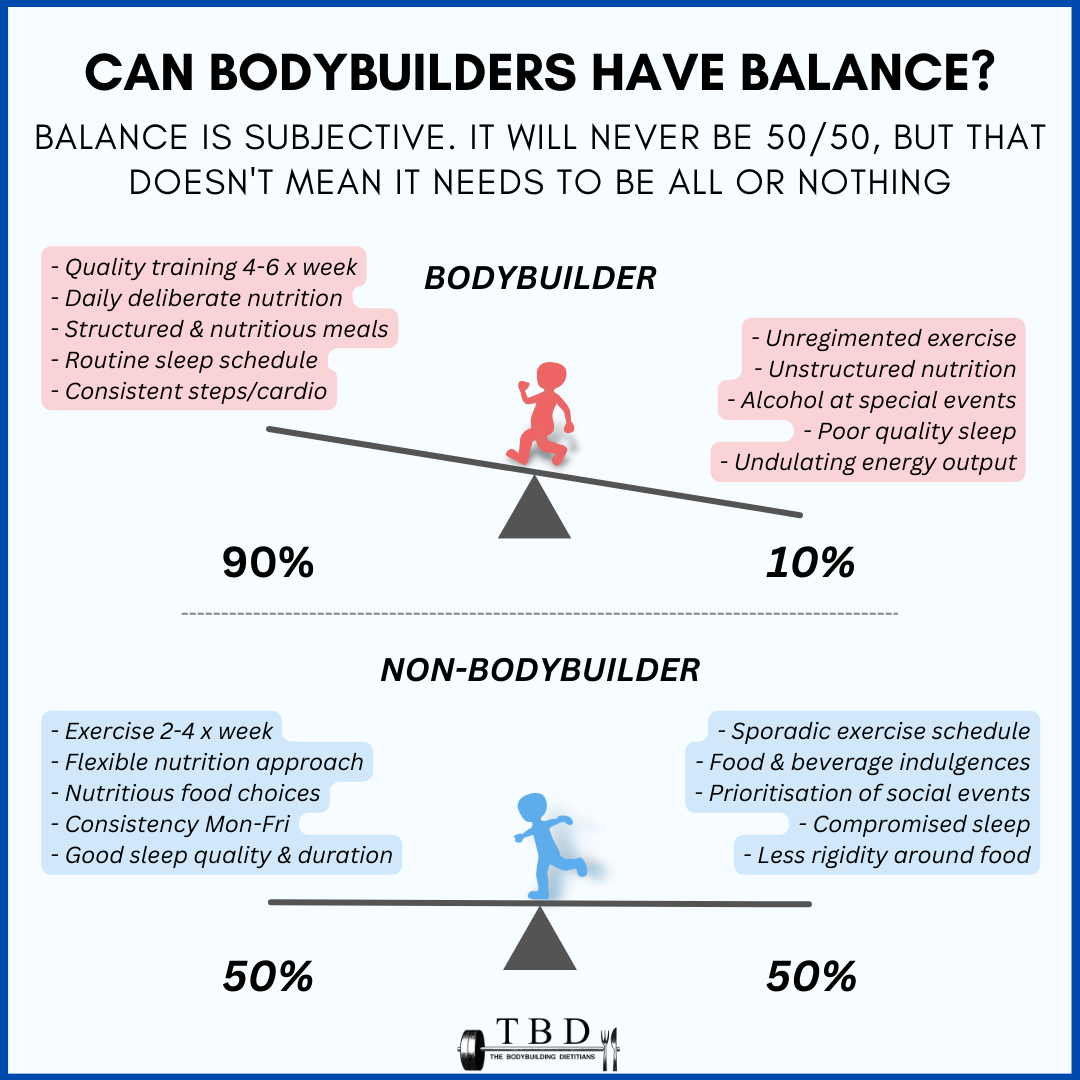Living a “bodybuilding lifestyle” and a “balanced lifestyle” are not synonymous.
Is one superior? No.
Are they different? Yes.
The definition of balance implies that someone has achieved a state of equilibrium; in a lifestyle scenario, this would imply that various health-influencing habits and routines are 50/50.
However, in the context of bodybuilding, we know that in order to pursue the goal of being a competitive athlete you can’t just be “on” 50% of the time. Therefore, by definition, bodybuilders cannot live a “balanced” lifestyle.
Should this be considered a cause for concern? Absolutely not.
Speak to any passionate bodybuilder and they will tell you about how much they LOVE their lifestyle and the qualities that the sport brings to enhancing it. They deliberately pursue their day-to-day routines because they desire to live in a certain way - every decision is happily a choice.
Furthermore, a 90/10 split might sound a bit extreme… but hear us out.
▪️If you train 5 x per week, this means 1 in every 10 training sessions you might do an alternative session with a friend or an activity unrelated to bodybuilding
▪️If you eat four meals per day this is 28 meals per week… 10% averages out to be 2-3 untracked meals per week
▪️If you consistently hit a step and/or cardio target, this could mean once every 10 days you have an extremely sedentary or active day
▪️If you routinely fall asleep and wake up at the same time to achieve 7-8 hours of high-quality 💤, every ~10 days you might stay up later socialising at an event or watching a movie
▪️If you attend 10 social events across a string of time, you might choose to indulge in alcoholic beverages at one of them
Essentially, out of every ~10 decisions a bodybuilder makes regarding their goals, nine are helpful and one might cause a slight hindrance.
The weight of these choices favour in tipping the pendulum to achieve goals, as “balance” in this case would not be supportive of being a competitor. The 90/10 distributed also allows for a subjectively comfortable level of “flexibility” and promotes the notion that pursuing this sport does not infer that someone needs to live in an “all-or-nothing” mindset.
